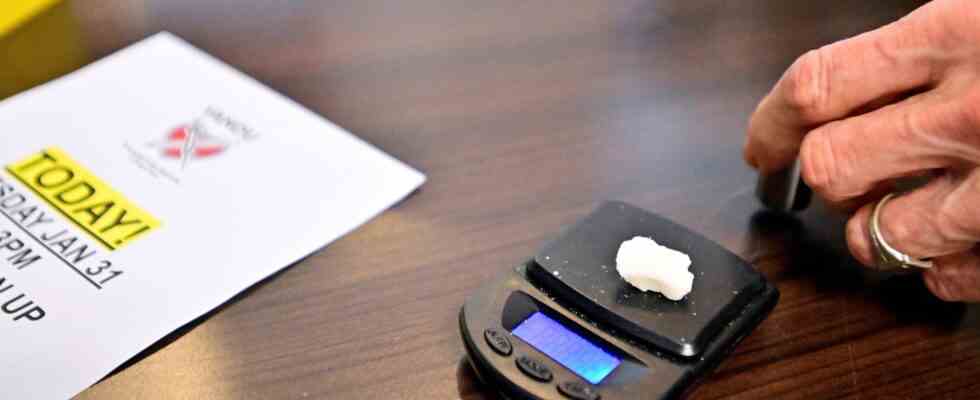Status: 08.02.2023 11:01 a.m
Help instead of criminalize: Possession of up to two grams of hard drugs should remain unpunished in the Canadian province of British Columbia in the future. With the model project, politicians want to get the drug crisis under control.
The western Canadian metropolis of Vancouver has been a drug stronghold for years. A veritable drug slum has developed along East Hastings Street in particular. Neglected addicts live on the streets, locals speak of the “Horror of Hastings”. Hardly a day goes by without someone dying from an overdose. The province of British Columbia therefore declared a health emergency years ago.
“In British Columbia, more people die from illegal drugs than from car accidents, homicide and suicide combined,” said Benjamin Perrin, a law professor at the University of British Columbia and a former adviser to the Canadian prime minister. “Drug overdose is the leading cause of unnatural death.”
35,000 dead from street drugs within a year
The problem got worse during the corona pandemic, according to the professor. It is no longer just the homeless, all social classes are affected – and other Canadian provinces as well. More than 35,000 people have died in Canada from contaminated street drugs since 2016.
Two years ago, Perrin published a book about Canada’s opioid crisis, which was largely caused by illegal synthetic drugs such as fentanyl. There is hardly a street drug that is not contaminated with it. The problem with this is that the effect is amplified many times over. Overdose is the common result.
Pilot project legalizes possession of hard drugs
It is a health crisis, says the law professor. “So we need a public health response to this. Criminalization and prosecution has been a complete failure.” The global war on drugs has cost billions. Drug users have been taken to prison and much damage has been done. “It’s a public health crisis,” Perrin said. “We need to stop treating it as a criminal justice crisis.”
British Columbia has now taken a first step in this direction. As part of a model project, the possession of small amounts of hard drugs in the province will be legalized for a period of three years. Adults may carry up to two and a half grams of cocaine, amphetamines, heroin or other opioids for personal use.
Epidemiologist: Legalization does not lead to more consumption
If you keep the police out and people know they won’t be arrested for possession or use, there is hope, says Canadian epidemiologist Dan Werb. As a result, people are more open to accepting low-threshold offers, such as monitored places of consumption, substitution with methadone or naloxone. “This allows them to protect themselves and reduce the risk of dying from an overdose,” says Werb.
The decriminalization of hard drugs in Portugal and also in the US state of Oregon have shown promising results. The legalization of cannabis in Canada is also an example of the fact that a more liberal drug policy does not lead to more consumption or addiction, as some feared.
There is simply no scientific evidence that supervised drug use rooms or the provision of sterile syringes affect whether or not people start or continue using drugs.
“Decriminalization is part of the answer,”
For the lawyer Perrin it is clear: the decriminalization of hard drugs can only be the first step. What is needed is better public education and more help and services for the tens of thousands who are addicted to hard drugs.
“As long as people depend on contaminated street drugs, they will continue to die,” Perrin said. Access to safe care therefore needs to be improved. “That doesn’t mean giving out free drugs to everyone. But medicines for people who use drugs anyway,” says the professor. “We need to improve access to treatments and programs.” He hopes that the provincial government will realize that they need to do more. “Decriminalization is part of the answer, but certainly not the whole solution.”
Pilot project – Canadian province of British Columbia decriminalizes hard drugs
Peter Mücke, 02/08/2023 09:42 a.m

